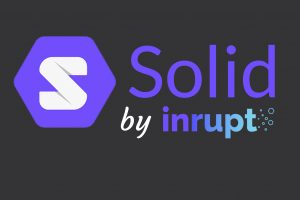Knowledge beyond knowledge bases
Cooperative associations are fundamentally different from libraries and schools. Students go to school to access knowledge; cooperative associations come to entrepreneurs to share knowledge from other entrepreneurs. Consequently, Coopedia is not much about aggregating documentation on a cooperative association’s website: it aims to bring knowledge to communities of practice.
Today’s communication strategies are about attracting entrepreneurs to our websites. What about reversing the process? How about displaying a resource directly on the apps used by entrepreneurs to coordinate their communities and manage their business? How powerful would become a cooperative development resource shown at the right time to the right person? Although Coopedia is setting a first cornerstone, such a vision goes beyond the deployment and multiplication of decentralized knowledge bases.
Coopedia is based on Solid standards. Designed by the World Wide Web Consortium, Solid standards set the stage for a fair and decentralized web. Solid standards’s key added value is to make interoperability universal. When two systems are interoperable, they are able to exchange data. Today, interoperability enables you to compare flight ticket fares, and book a trip involving different airlines companies; it also enables Google Maps to indicate your next train departure and inform you about delays.
However, until now, making two systems become interoperable has been extremely expensive, and reserved to large players: this is why Google Maps suggests you Uber rather than your local taxi coop. Solid breaks the costs of interoperability: any Solid-based application can be interconnected with any other Solid-based application. No matter how rich or powerful you are, if interconnecting your system with a partner’s system is relevant, you can interconnect. Voilà.
Now, imagine the power of a Coopedia interconnected with its ecosystem of cooperative applications. Sarah and Mike just founded a freelancer cooperative: to manage their coop, they deployed a Solid-based cloud for sharing documents among their members. The model is successful, but the founders remain unsatisfied: they now want to foster innovation and empowerment within their coop.
In a matter of minutes, Sarah connected their cloud with Coopedia: she set filters so that only documents written in English, and addressing innovation within freelance coops would appear on their internal cloud. Now, by accessing their regular collaborative tools, freelancers see and access stimulating, up-to-date and relevant resources designed to stimulate collective creativity.
By using universal Solid standards, Coopedia web app aims to make data (and knowledge) flow well beyond current capabilities — and even imaginations. Untapping its full potential requires the creation of a wide ecosystem of interoperable apps, designed by people aware about the enormous potential of knowledge-sharing. Let’s build and connect!



